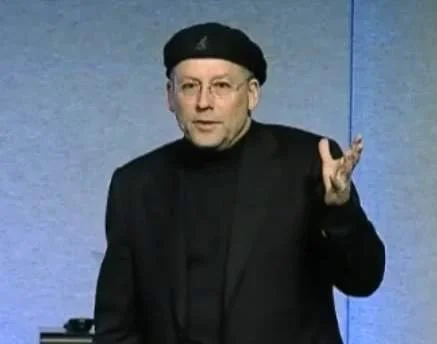Bringing his usual energy to the stage, Mooly Eden, Intel’s general manager of the PC client group, delivered a charismatic keynote at the firm’s developer forum on Wednesday.
Covering everything from Sandy Bridge, to Ivy Bridge, a working demo of Haswell, energy saving screen technology, Thunderbolt for PC and – of course – Ultrabooks, Eden outlined what he saw as a “revolution.”

“The magic is to deliver a magic performance,” Eden said, noting how quickly Sandy Bridge had ramped, with 75 million units already sold and with Ivy Bridge already yapping at its heels.
Ivy Bridge, with its whopping 1.48 billion transistors is Intel’s third generation 22nm platform, which Eden promised would find to be a “delight.”
Intel usually keeps to a “Tick-Tock” cadence, where tick’s represent smaller scale architecture updates while tock’s are larger overhauls. Ivy Bridge is supposedly a tick rather than a tock, but Eden insisted that it was more of a tick plus.
“It’s mobility without compromise, the peace of mind at a price that works, the power to create and a design that reflects me,” he said, saying the platform would allow computing to push past “thin and light.”
“You need a great engine to have a great driving experience and it’s the same with computing, it’s important what’s under the hood,” Eden said discussing how Intel’s engineers had redesigned the CPU so that even in a small form factor it would still be able to pack a performance punch.
Pricing would also be an important factor in upcoming Ultrabook models, Eden explained, noting that the goal was to get the systems to sub $1000 price points. “You’re going to be surprised when you see the affordability of these systems,” he added.
SandyBridge Ultrabooks will already be shipping in time for the holiday season, while next-gen Ivy Bridge Ultabooks will make it to market at some point in the first half of 2012.
While Intel seems to have solved its form factor dilemma, Eden admitted that battery life remained a challenge for all mobile platforms in the industry, and a problem Intel was intent on solving.
To that end, Eden unveiled a display reference design from LG (the eDP 1.3 PSR) with self-refreshing panels, which stored images on the screen using a tiny amount of memory instead of using the computer’s own frame buffer which uses more power.
The new panels could enable savings of up to 45 minutes of battery life, which would make a significant difference to future laptops. “We need to work hard to make it the standard in the industry,” Eden told the audience.
The next innovation coming to upcoming Ultrabooks is Thunderbolt technology – currently only available on Apple MacBooks – coming to Windows PCs next year, with both Acer and Asus promising systems with the high-speed interconnect technology. On stage, Eden showed a demo of Thunderbolt working on a PC streaming at over 700MBps.
To conclude his keynote, Eden ended with an impressive demo of an already working Haswell chip. The platform – which is scheduled for some time in 2013 – is said to boast a 20 times power improvement over Ivy Bridge enabled by Intel power optimizers. “This product is brilliant and the design team is brilliant,” Eden enthused.






